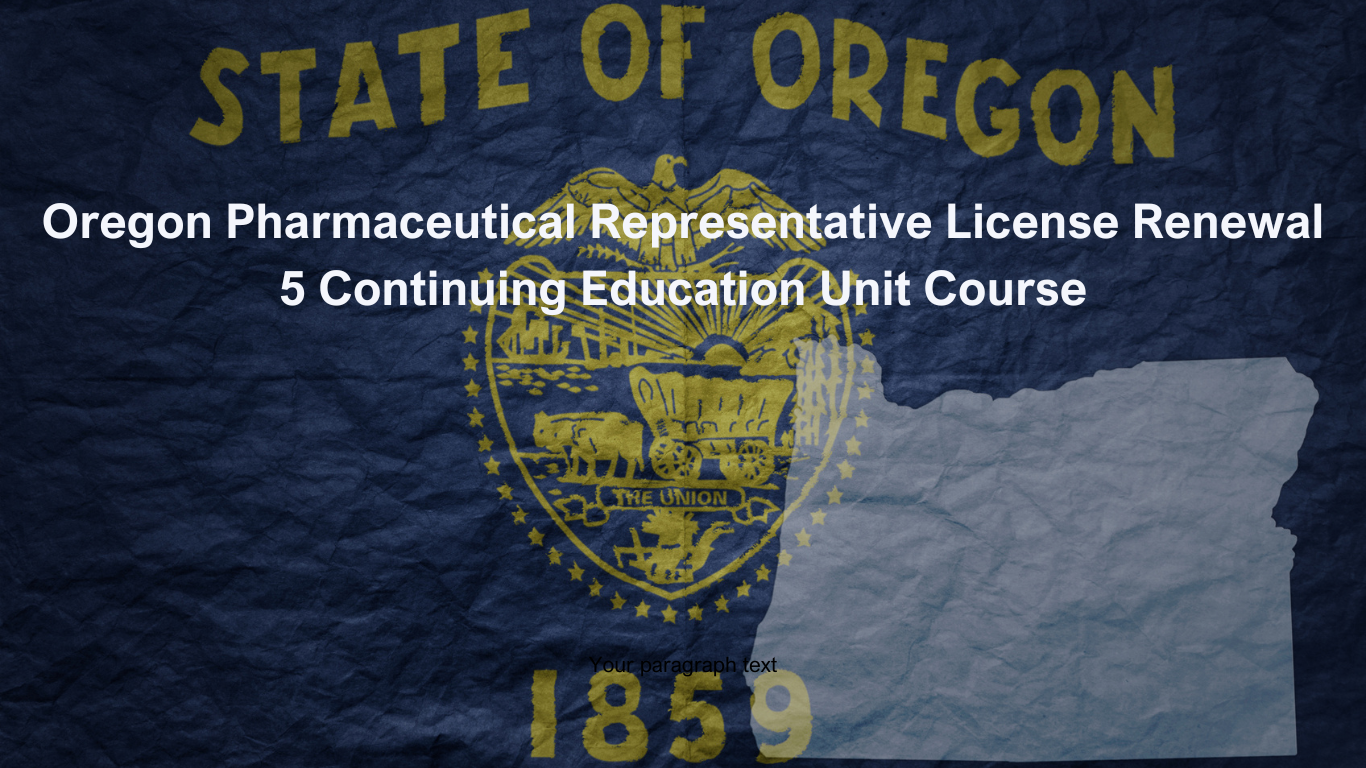Oregon Pharmaceutical Representative 5 Credit Continuing Education Curriculum
This 5-credit curriculum is accredited by Oregon and fulfills the requirements for the continuing education license renewal. The curriculum consists of 7 courses each having an assessment. Upon completion of the curriculum, you will receive a Certificate of Completion, and the credits will be uploaded to your Oregon license account.

Oregon Pharmaceutical Representative 5 Credit Continuing Education Curriculum
This 5-credit curriculum is accredited by Oregon and fulfills the requirements for the continuing education license renewal. The curriculum consists of 7 courses each having an assessment. Upon completion of the curriculum, you will receive a Certificate of Completion, and the credits will be uploaded to your Oregon license account.

State of Oregon Requirements*
License renewal (5 CEUs)
